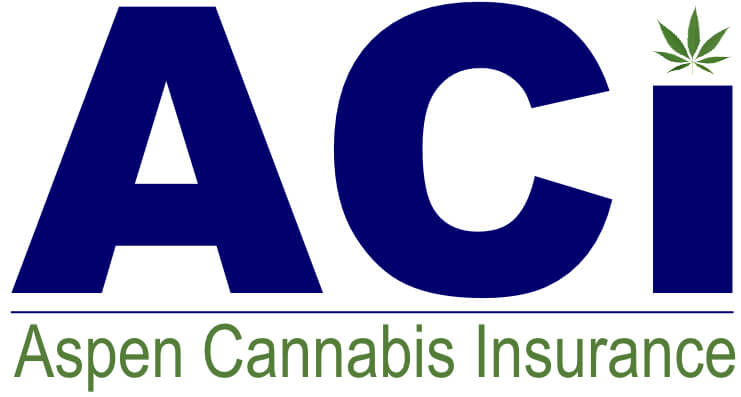
Medical Marijuana and Health Insurance
Medical marijuana is now legal in 37 states, plus the District of Columbia. Since those states agree marijuana is an effective medication for the treatment of certain health issues, shouldn’t marijuana also be covered by insurance?
Difficult to say what “should” means in this context, but at the moment, marijuana is not a reimbursable medication either in the Obamacare marketplace, or by Medicare or Medicaid.
There are a couple of reasons for this, the biggest perhaps being the Controlled Substances Act.
Controlled Substances Act
The Controlled Substances Act (CSA) places all substances which were in some manner regulated under existing federal law into one of five schedules. Placement is based upon a couple of factors, including the substance’s medical use, potential for abuse, and safety or dependence liability.
Congress passed the act in 1970, the classification of substances determined by the Drug Enforcement Administration (DEA) and the Food and Drug Administration (FDA). The DEA has ruled that marijuana is a Schedule I drug, the highest classification possible, because the FDA determined there is no current accepted medical use for marijuana in the U.S.
Marijuana (or Marihuana, as it spelled on the schedule) is a Schedule I drug, the highest classification possible, along with heroin, lysergic acid diethylamide (LSD), ecstasy, methaqualone, and peyote.
The list or schedule of narcotics and their classification may be added, changed, or deleted if initiated by the Drug Enforcement Administration (DEA), the Department of Health and Human Services (HHS), or by petition from any interested party, including:
- The manufacturer of a drug
- A medical society or association
- A pharmacy association
- A public interest group concerned with drug abuse
- A state or local government agency
- An individual citizen
As a schedule 1 narcotic, Americans who use marijuana to treat health issues can’t legally possess, sell, give away or grow, even if they live in one of the 37 states having legalized its use as a medical substance. This also mean doctors, physicians and other healthcare providers can’t prescribe marijuana to patients, though they can recommend or authorize it due to the First Amendment. Which is also part of the reason why insurance companies can’t, or won’t, cover it.
Historians note that Marijuana’s placement in Schedule I did not happen in a vacuum: overt racism, combined with New Deal reforms and bureaucratic self-interest are often blamed for the first round of federal cannabis prohibition under the Marihuana Tax Act of 1937. The act restricted possession to those who paid a steep tax for a limited set of medical and industrial applications, marijuana being removed from the official U.S. Pharmacopeia in 1942.
“In segregated America newspapers were saying, ‘this stuff makes white women and black men have sex,’” notes historian Martin Lee, author of Smoke Signals: A Social History of Marijuana.
The American Medical Association initially opposed prohibition. Cannabis was medically useful, says William Woodward, association counsel. “Congress at the time, could ram any laws through without data or any supporting facts. Lee adds. “Who’s going to be stepping up to the plate [in 1937] to defend a drug that blacks, Latinos and jazz musicians use?”
This determination has come to be insulated by a byzantine, Kafkaesque bureaucratic process now impervious to the opinion of the majority of U.S. doctors—and to a vast body of scientific knowledge, say many experts.
However, federal law isn’t the only thing keeping insurers from covering medical weed. The FDA and the lack of clinical research play important roles, too.
Other Factors Preventing Insurance Coverage of Marijuana
Marijuana is Illegal
Health insurers in the United States will not pay for any medications which are technically illegal.
Despite medical marijuana being legal in the majority of states, its classification as a Schedule 1 substance means it is technically illegal. Schedule I controlled substances can’t be prescribed by healthcare providers the way other medications are.
Even if medical marijuana has been legalized in your state, as long as it’s considered a Schedule 1 drug by the federal government, a healthcare provider prescribing it risks losing their ability to prescribe even simple controlled substances such as sleeping pills or cough syrup containing codeine. As a result, most healthcare providers recommend medical marijuana, rather than prescribing it.
Marijuana and the Drug Formulary
Even if the U.S. were to change marijuana to a schedule II or III drug—thereby allowing its prescription and decriminalizing its medical use across the country—your health insurance company probably still wouldn’t pay for your medical marijuana. Likewise, if congress were to remove marijuana from the list of controlled substances, health plans would still not cover a drug which is not on the drug formulary. Drug formularies are a list of covered medications. Drugs are added to the formulary by a health plans pharmacy and therapeutics committee.
Those committees rarely (if ever) add drugs to the formulary if the drug hasn’t been FDA approved. Getting new drug approval from the FDA requires clinical studies to determine both the drug’s safety and the drug’s effectiveness. The median review time for standard drug applications was 10.1 months in 2018, up from 2.8 years for standard and priority applications that occurred from 1986 to 1992. However, the total time from the beginning of clinical testing to approval has remained the same at 8 years.
As a point of comparison, the Novel Corona vaccine was approved in a year, a speed unheard of, and driven by the impact of a worldwide pandemic.
Without FDA approval, health plans will not add marijuana to the drug formulary.
The FDA has, however, approved three separate drugs containing a synthetic form of THC for treating seizures associated with two forms of epilepsy. Although not the same thing as cannabis, all three may be prescribed as any other FDA-approved medication and are covered by many health insurance plans.
Marijuana As An Herbal Remedy
Were marijuana to be reclassified to no longer be a controlled substance, it would be available without a prescription, which still wouldn’t result in coverage by health insurers.
Once a drug becomes available without a prescription, it’s removed from health plan drug formularies. For comparison, health insurance does not reimburse for Tylenol, or Flonase (which itself was a prescription-only drug a few years ago and is now available over-the-counter).
Patients using medical marijuana may buy it over the counter without a prescription just as other herbal remedy or over-the-counter analgesic. Health insurers would be reluctant to create a precedent of paying for over the counter remedies.
Health Insurance and Marijuana
This doesn’t mean health insurers will “never” cover medical marijuana.
Medical use was legalized New Mexico in 2007 through a bill signed by Governor Bill Richardson. A 1978 law also allowed for medical use, but only through a federally-approved research program. It was the first medical cannabis law enacted by any state.
In 2021, New Mexico’s governor signed Senate Bill 317, “No Behavioral Health Cost Sharing”, into law. The law prohibits imposing “cost-sharing by health insurers on behavioral health services covered by an individual or group health insurance policy, health care plan, or certificate of health insurance”.
As a result, New Mexico’s largest marijuana company is attempting to pressure insurers to cover medical cannabis costs for certain patients, a move required by the new state law.
Ultra Health sent a letter to insurance companies and state agencies in February, arguing that the new law should be interpreted to include medical cannabis for the nearly 73,000 New Mexicans registered as patients for related qualifying conditions.
Under the enacted law, the definition of behavior health services was expanded to include “professional and ancillary services for the treatment, habilitation, prevention and identification of mental illnesses, substance abuse disorders and trauma spectrum disorders, including inpatient, detoxification, residential treatment, and partial hospitalization, intensive outpatient therapy, outpatient and all medications, including brand-name pharmacy drugs when generics are unavailable.”
Ultra Health says the operative phrase there is “all medications,”.
“Ultra Health acknowledges that the idea of health insurers paying for medical cannabis may seem novel at first blush,” the company wrote in the letter. However, they argued that it’s “actually a rational, reasonable notion when considered in light of other New Mexico law.”
For example, “New Mexico already requires workers compensation insurers to pay for medical cannabis, and New Mexico already treats medical cannabis the same as conventional prescription medications.”
“The fact that health insurers should—and will—pay for medical cannabis is not revolutionary at this point,” the letter says. “It is the next logical step, and it is a small step, not a giant leap.”
“Now, of course the notion of insurers paying for medical cannabis may require specific decisions regarding which funds to use,” the letter acknowledges. “Cannabis is obviously still illegal at the federal level, so programs that receive federal funding may need to segregate the funds used for medical cannabis and use only non-federal sources of money.”
Ultra Health also cited medical policies in Canada, Germany, Colombia, and Israel, where medical marijuana is covered through traditional health insurance services.
In summary, medical marijuana is not covered by health insurers. But that doesn’t mean they won’t in the future. The Ultra Health action could create a precedent to be cited across the 37 states having legalized medical marijuana.
Just don’t expect insurers to immediately add marijuana to their formularies. Even if Congress were to remove marijuana from the list of controlled substances, FDA approval could take up to eight years. It would be difficult for any insurer to add marijuana before FDA approval. But New Mexico could change the landscape.
Aspen Cannabis Insurance is a family run business in Denver, Colorado servicing clients nationwide. We work with multiple insurance carriers to offer our customers a wide variety of risk reduction coverage at the lowest possible cost. We offer a wide range of personal, auto insurance, commercial and professional insurance to residential and commercial insurance customers enabling the cheapest rates available. Call to speak to one of our professionals for home or business insurance and see how painless insurance shopping can be.
